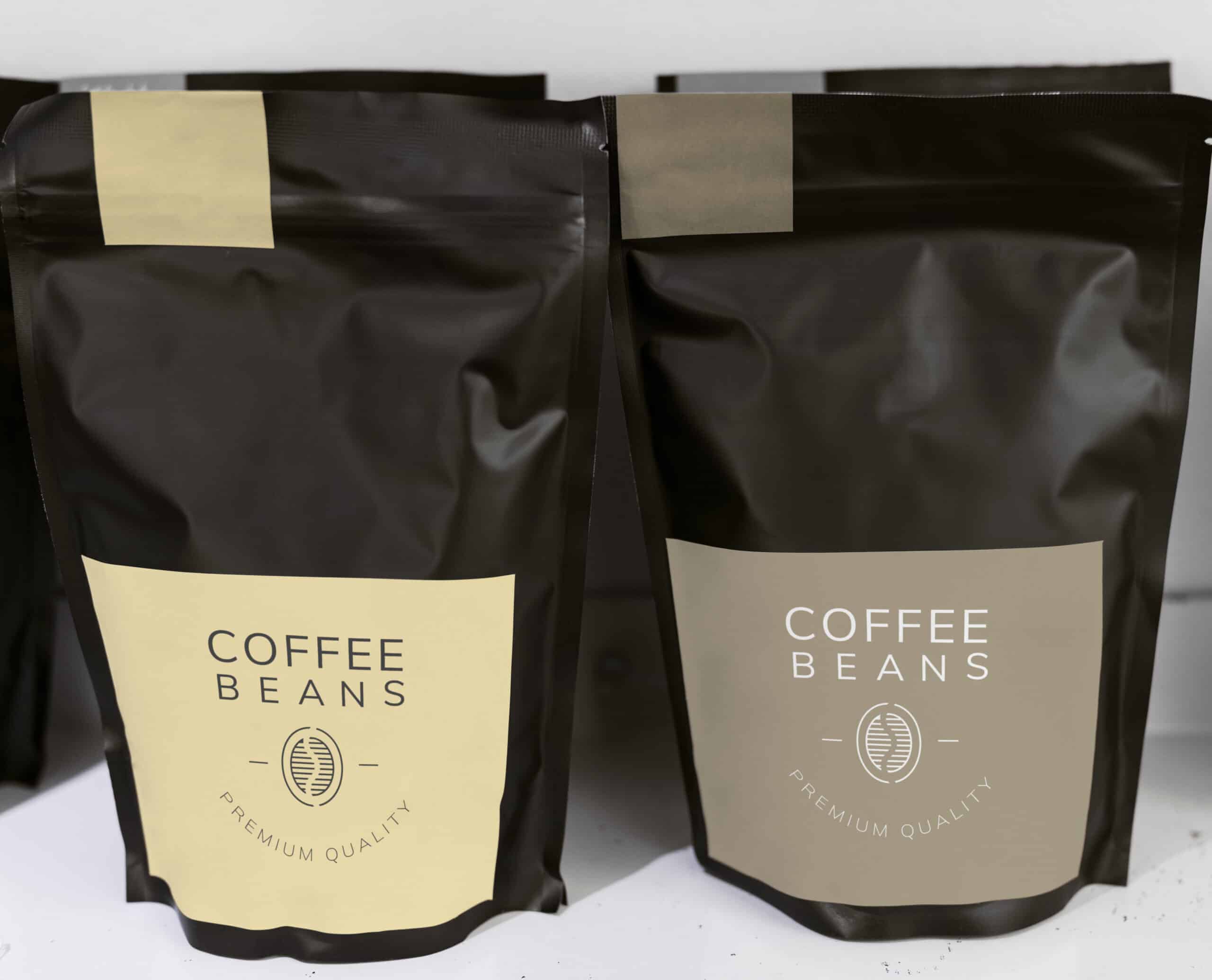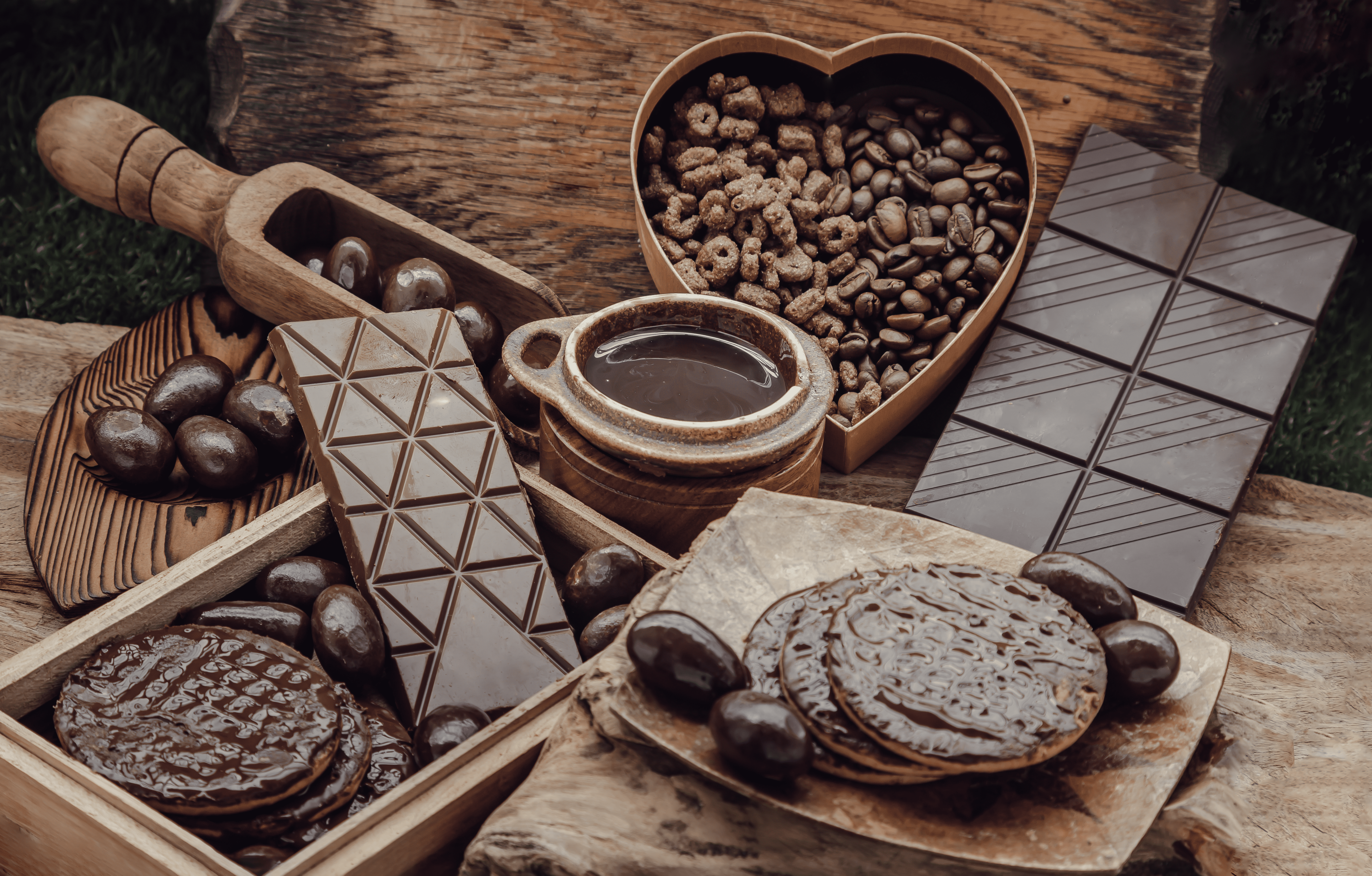You’re one of those people who doesn’t feel alive until you’ve had at least two or three cups of coffee. The small coffee bags sold at grocery stores and coffee shops make you laugh, as you need much more coffee than that. You’re thinking of buying coffee beans by the pound. How much coffee can you brew if you purchase a one-pound bag?
According to the Specialty Coffee Association of America or SCAA, when following the Golden Ratio, one pound of coffee is 270.5 ounces, which translates to approximately 34 cups of coffee.
Ahead, we’ll talk more about how much coffee you can brew with one pound of beans (or grounds). We’ll also go over practical matters like the cost to buy that much coffee, how long the coffee is good for, and how and where to store it.
Let’s get started!
How Many Cups of Coffee Are in a One-Pound Bag?
When it comes to the rules of brewing coffee, we like to defer to the Specialty Coffee Association of America or SCAA.
The SCAA is the one that popularized the Golden Ratio, which indicates how much water to coffee you should add when brewing java. That ratio is supposed to be 1:18.
In other words, you need 55 grams of coffee for every liter of water in your coffee machine.
Following that math, we can deduce that a pound of coffee would contain 270.5 ounces or approximately 34 cups.
The Factors That Influence How Much Coffee You Can Brew in a One-Pound Bag
Now, we should note that much coffee you can brew using a one-pound bag of coffee varies. In some cases, you can brew 48 servings of coffee if each cup is six ounces or 36 cups of eight-ounce coffee.
Why the discrepancy between that and what we talked about in the last section? Here are the factors that come into play.
Type of Coffee & Brew Method
What if the coffee-to-water ratio is different? After all, for many other types of coffee, the ratio can be smaller than 1:18.
In those cases, then a pound of coffee beans can either take you further or not as far as the Golden Ratio purports.
For example, if you like to use your coffeemaker for cold brew concentrate, the coffee-to-water ratio is 1:5. That’s far smaller than 1:18, so how does it affect how much coffee you’ll get per pound?
You’d get fewer cups, about 20 cups per pound but possibly more depending on if you like your cold-brew coffee with more water or less.
French press coffee, drip coffee makers, and pour-over coffee follows the 1:17 ratio, which is approximately 34 cups per pound.
Espresso, which is highly caffeinated and thus meant to be consumed in small quantities, follows the 1:2 coffee-to-water ratio. That’s 32 shots of espresso. An espresso shot is about two ounces versus six to eight ounces for a standard cup of coffee.
Whole Beans & Grinding
If you’re buying whole coffee beans, then you’ll grind them before you brew them. Grinding reduces the size of the coffee bean, but more so than that, you lose some of the coffee in the bean as well.
Fewer than one percent of the total weight of the coffee bean is shed, so the coffee loss is minimal, but it happens, nevertheless.
What if you buy your coffee pre-ground? Well, those coffee beans still went through a grinder before they arrived on a store shelf and you, the customer, bought the grounds and took them home.
Thus, you can again expect that some coffee loss occurred. Of course, commercialized grinding is going to lead to less of a coffee loss than doing it at home, especially if you’re new to coffee grinding or you have a cheap grinder.
If you want to produce more coffee in each cup, it might be time to invest in a better-quality grinder. You’ll recoup that money when you get more coffee per pound of beans.
The Roast Type
Coffee beans, after being ground, then undergo roasting. The longer the beans are roasted, the more mass they lose.
For that reason, light and medium-roast coffee would be more plentiful in a one-pound bag of coffee beans than dark roast coffee.
How much coffee loss would occur depending on the roast type is hard to say but would likely be negligible.
Coffee Strength
Coffee strength refers to the coffee-to-water ratio, meaning what percentage of a cup of coffee is dissolved coffee grounds compared to the amount of water.
If you prefer your coffee to have a stronger taste then you would use more coffee grounds. This would affect the number of cups of coffee you would be getting from a one-pound bag.
How Much Does a Pound of Coffee Beans Cost?
Now let’s get into the practicalities of buying this much coffee at once. If you’re going to shell out for a pound of coffee, exactly how much money are you going to spend?
Well, that varies depending on the manufacturer and the roast type. Here are some examples of what one pound of coffee costs featuring your favorite brands.
- Death Wish Coffee Co. ground medium roast coffee – $19.99
- Starbucks one-pound ground Verona coffee – $15
- Starbucks Pike Place roast whole-bean coffee – $18
- Peet’s Coffee & Tea Major Dickason’s bulk ground coffee – $18
- Dunkin’ Donuts whole-bean Original Blend coffee – $19
- Koffee Kult gourmet dark roast coffee beans – $36
How Long Is a One-Pound Bag of Coffee Good for?
You bought a single-pound bag of coffee and you’re ready to get brewing.
Of course, even a coffee lover like you won’t use all the coffee in a day or two. You plan on making that pound of coffee last, but how long is it fresh for?

The bag of coffee will have a roast date printed on it, which is sort of like the “best by” date on a package of food. The beans or grounds will have the best flavor if you use them up until that roast date.
Using the SCAA estimate of 34 cups of coffee to a pound, if you drink three cups of coffee per day, you’d have coffee for 11.3 days, which we can round down to 11 days. You’d finish your pound of coffee before there’s any risk of it going bad.
If you only sip two cups of coffee at home each morning, then the pound of coffee would last you for 17 days. At that point, you shouldn’t have to worry about coffee bean expiry, but you’d be cutting it close.
What if you only enjoy one cup of home-brewed coffee at home before you go to work? That math is easy. The coffee would last 34 days. Since three weeks is 21 days, some of your coffee might get stale by the time you’re on your third or fourth week of brewing the same one-pound bag.
Tips for Storing Large Quantities of Coffee
Where you store your coffee when not brewing it can accelerate a reduction in quality. Here are our top tips for properly storing one pound of coffee.
Move the Coffee to Airtight Canisters After Opening
When the bag that your coffee comes in is a good storage option when the bag is sealed, as soon as you open it, you need another coffee storage method. We’d recommend a long canister. The lid should create an airtight seal when closed. The Coffee Gator is an excellent option when storing coffee.
Keep Coffee in a Cool, Dark Environment
Four factors can kill the quality of coffee in a hurry. They are light, heat, moisture, and air. Keeping that in mind, you have to be cautious about where you store your coffee.
Avoid sunny rooms, warm areas, and anywhere where humidity can generate. An enclosed cabinet is usually cool and dark enough, but elsewhere in the kitchen is not a good spot.
Consider Freezing the Coffee
When you grind coffee beans, you can freeze them. We wrote about that here on the blog.
If you decide to freeze your ground coffee, you must use an airtight container or bag. Vacuum-sealing the bag will keep air out.
Since most bags are translucent, taking colored plastic packaging and wrapping it around the bag is recommended. You can also use an opaque container to keep light out.
In the freezer, select a spot away from any freezer lights, coils, or sources of heat. That’s right, your freezer does generate heat despite that it keeps your food frosty cool.
Once you freeze coffee grounds, you get a week or two to use them. Don’t wait longer than two weeks or the grounds won’t be fresh.
FYI, you can freeze whole coffee beans as well for upwards of four months. The longer they spend in the freezer though, the worse their flavor will be.
Final Thoughts
Per SCAA standards, a pound of coffee will yield approximately 34 cups. You’ll spend about $20 on a pound of coffee, and it lasts roughly three weeks.
If you drink a lot of coffee every day, then buying a pound of coffee at a time is worthwhile. For those who can get by on a single cup in the morning, you might want to purchase smaller quantities of coffee instead.
After all, coffee loses its quality the longer the beans or grounds sit, and no one wants to drink stale coffee!
Can You Brew Coffee Using Chocolate-Covered Coffee Beans?
You recently received a thoughtful treat from a friend of yours: chocolate-covered coffee beans. You could eat them straight out of the box, but then you have another thought. Since…
How Much Coffee Can You Take on a Plane?
You want to take your favorite coffee with you on a trip or bring some home on vacation. To do so, you must pack it carefully and likely bring it…


